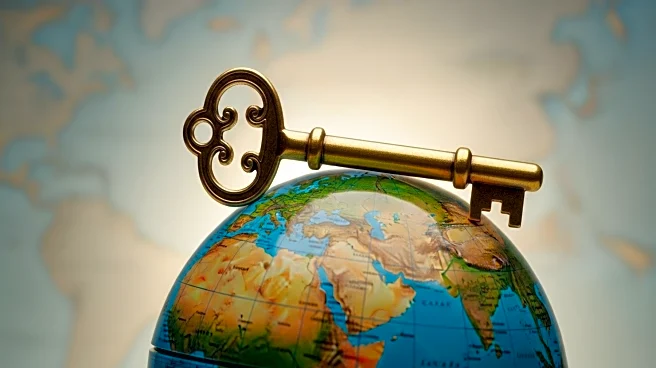What's Happening?
The conclusion of the Gaza conflict has seen the release of 20 Israeli hostages, marking a significant moment in the ongoing tensions between Israel and Hamas. However, 24 bodies remain unaccounted for, presenting challenges for Hamas in their return. Israeli Prime Minister Netanyahu is navigating diplomatic opportunities while managing the hardline stance of his coalition. This development could lead to major diplomatic shifts in the Middle East, as the region grapples with the aftermath of the conflict.
Why It's Important?
The release of hostages and the potential diplomatic shifts could have profound implications for Middle Eastern politics. Israel's ability to leverage diplomatic opportunities may influence regional stability and future peace negotiations. The hardline stance within Netanyahu's coalition could impact Israel's foreign policy decisions, affecting relations with neighboring countries and international stakeholders. The situation remains delicate, with potential gains for diplomatic relations but risks of further tensions if not managed carefully.
What's Next?
The next steps involve continued diplomatic efforts by Israel to capitalize on the current situation. Netanyahu's government may seek to strengthen alliances and negotiate peace terms, while balancing internal political pressures. The international community will likely monitor these developments closely, with potential reactions from major stakeholders such as the United States and European nations. The outcome of these diplomatic maneuvers could shape the future of Middle Eastern geopolitics.
Beyond the Headlines
The ethical and cultural dimensions of the hostage release and diplomatic shifts are significant. The conflict has highlighted the human cost of political tensions, with families affected by the loss and return of loved ones. Long-term shifts in regional alliances and power dynamics could emerge, influencing cultural and societal changes across the Middle East.










